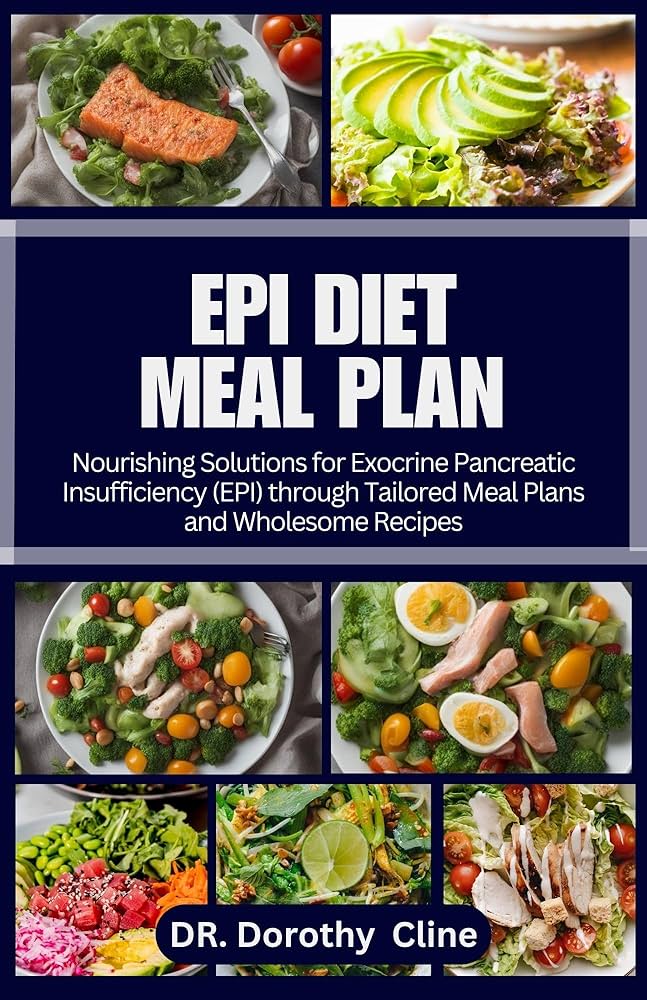The Best Diet For Exocrine Pancreatic Insufficiency
Imagine waking up every morning with a constant feeling of exhaustion, bloating, and digestive discomfort. Sounds like a nightmare, right? Unfortunately, this is the reality for millions of people worldwide who suffer from Exocrine Pancreatic Insufficiency (EPI). A condition where the pancreas fails to produce enough enzymes to digest food properly, leading to malabsorption of nutrients and a host of uncomfortable symptoms.
In this blog post, we’ll dive into the world of EPI diet and explore the best dietary approaches for managing this chronic condition. But before we get started, let’s take a step back and understand what EPI is, its impact on daily life, and why it matters.
What is Exocrine Pancreatic Insufficiency (EPI)?
EPI occurs when the pancreas produces insufficient amounts of digestive enzymes, such as amylase, lipase, and trypsin, to break down food properly. This can be caused by genetic defects, autoimmune disorders, or chronic diseases like cystic fibrosis. When undigested food enters the intestines, it leads to malabsorption of essential nutrients like fat-soluble vitamins (A, D, E, K), calcium, and iron.
Why Does an EPI Diet Matter?
A well-managed diet is crucial for individuals with EPI. Without proper nutrition, the condition can exacerbate symptoms like diarrhea, abdominal pain, weight loss, and fatigue. Moreover, malabsorption of vital nutrients can lead to serious complications, such as osteoporosis, anemia, and impaired growth in children. By adopting a tailored diet, you can alleviate symptoms, improve digestion, and maintain overall health.

The Best Diet For Exocrine Pancreatic Insufficiency
Imagine waking up every morning with a constant feeling of exhaustion, bloating, and digestive discomfort. Sounds like a nightmare, right? Unfortunately, this is the reality for millions of people worldwide who suffer from Exocrine Pancreatic Insufficiency (EPI). A condition where the pancreas fails to produce enough enzymes to digest food properly, leading to malabsorption of nutrients and a host of uncomfortable symptoms.
In this blog post, we’ll dive into the world of EPI diet and explore the best dietary approaches for managing this chronic condition. But before we get started, let’s take a step back and understand what EPI is, its impact on daily life, and why it matters.
What is Exocrine Pancreatic Insufficiency (EPI)?
EPI occurs when the pancreas produces insufficient amounts of digestive enzymes, such as amylase, lipase, and trypsin, to break down food properly. This can be caused by genetic defects, autoimmune disorders, or chronic diseases like cystic fibrosis. When undigested food enters the intestines, it leads to malabsorption of essential nutrients like fat-soluble vitamins (A, D, E, K), calcium, and iron.
Why Does an EPI Diet Matter?
A well-managed diet is crucial for individuals with EPI. Without proper nutrition, the condition can exacerbate symptoms like diarrhea, abdominal pain, weight loss, and fatigue. Moreover, malabsorption of vital nutrients can lead to serious complications, such as osteoporosis, anemia, and impaired growth in children. By adopting a tailored diet, you can alleviate symptoms, improve digestion, and maintain overall health.
Dietary Recommendations for EPI
So, what should you eat with EPI? A balanced diet rich in nutrients is essential. Here are some key dietary recommendations:
- Fatty foods are your friend: Fat-soluble vitamins require fat to be absorbed properly. Include healthy fats like olive oil, avocado, and fatty fish in your meals.
- Focus on fiber-rich foods: Fiber can help regulate bowel movements and alleviate symptoms of EPI. Incorporate whole grains, fruits, and vegetables into your diet.
- Avoid high-fiber foods at first: While fiber is essential for overall health, it may exacerbate symptoms in the early stages of EPI. Start with small amounts and gradually increase as your body adjusts.
- Choose low-fat dairy products: Low-fat or fat-free dairy products can be beneficial for those with EPI. Consult with a healthcare professional or registered dietitian for personalized guidance.
- Limit processed foods and added sugars: Processed foods and added sugars can worsen symptoms of EPI and compromise overall health. Opt for whole, nutrient-dense foods instead.
- Stay hydrated: Adequate hydration is crucial for maintaining digestive health. Aim to drink at least eight glasses of water per day.
By incorporating these dietary recommendations into your daily routine, you can effectively manage EPI symptoms and improve overall well-being.
Conclusion
A well-managed diet is a vital part of living with Exocrine Pancreatic Insufficiency. By understanding the condition and making informed dietary choices, individuals with EPI can alleviate symptoms, maintain digestive health, and enjoy a better quality of life. In our next blog post, we’ll explore additional strategies for managing EPI, including supplements and lifestyle modifications.
Consult with a Medical Expert
Learn how to manage your exocrine pancreatic insufficiency symptoms effectively.
Start consultationThe Best Diet For Exocrine Pancreatic Insufficiency (EPI): Conclusion and Final Insights
In our previous sections, we explored the world of EPI diet and outlined the best dietary approaches for managing this chronic condition. To recap, a well-planned diet can help alleviate symptoms like diarrhea, abdominal pain, weight loss, and fatigue by ensuring adequate nutrient absorption.
Key Takeaways
To get started on your personalized EPI diet, remember the following key points:
- A high-fat diet is essential for EPI patients to ensure proper fat-soluble vitamin absorption. Include healthy fats like avocado, nuts, and olive oil in your meals.
- Focus on whole, unprocessed foods like vegetables, fruits, lean proteins, and whole grains to provide a balanced mix of essential nutrients.
- Incorporate digestive enzymes and probiotics into your diet to support gut health and improve nutrient absorption.
- Consult with a healthcare professional or registered dietitian to create a personalized meal plan tailored to your specific needs and preferences.
Final Insights
Living with EPI requires patience, persistence, and the right dietary approach. By adopting these dietary principles, you can take control of your health and alleviate symptoms associated with this chronic condition.
A New Beginning: Empowering Your EPI Journey
We understand that managing EPI can be overwhelming at times. However, by embracing a well-planned diet and making informed lifestyle choices, you can reclaim your life and regain control over your health. Remember, every small step counts, and with the right guidance, you can thrive despite this chronic condition.
Weight loss a 1200 calorie diabetic diet plan: Are you tired of feeling stuck in your weight loss journey? This article reveals the secrets to shedding pounds while managing your diabetes with a simple and effective 1200 calorie diet plan.
Low iron saturation a critical health indicator: Did you know that low iron saturation can be a warning sign of underlying health issues? This article sheds light on the importance of monitoring your iron levels and what you can do to maintain optimal health.


